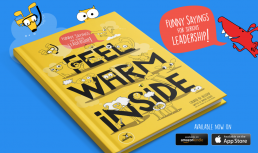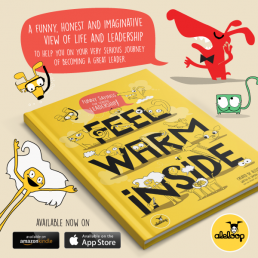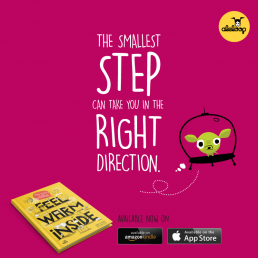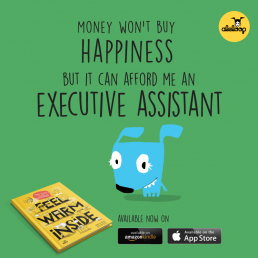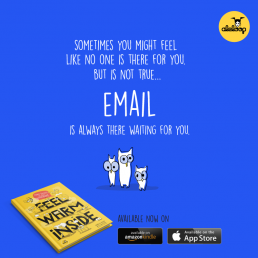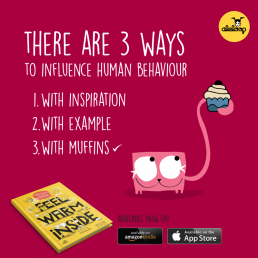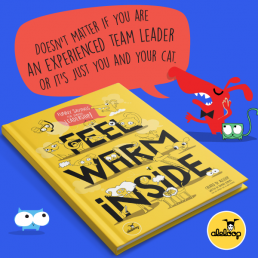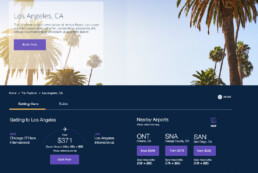Creating a team identity.
How do we inspire and support our teams to deliver their best performance, creativity, and unique point of view into the game? 5 simple approaches to leverage your global team into a collaborative, focused, and engaging global workforce.
Global teams located in different geographies are often viewed more as a challenge than an advantage. The key factor is to draw from its diversity and abilities to bring different cultural experiences to improve, built, and expand not only projects but also the unique company culture. The growth and evolution of a project balance individual contributions and collective engagement and streamlined vision.The challenge is not in the level of social distance, but in the degree of emotional connection among team members. Fostering positive relational dynamics, interactive communications, and team building strategies to mentor individuals and teams, to overcome and negotiate tensions across timezones, countries, and cultures.
Misunderstandings within the global teams can either produce costly consequences or remarkable innovations, creating millions of dollars in value for their customers and shareholders.
Creating a team identity beyond language.
Audiences and markets have become globalized and teams have grown to an amazing ecosystem of culturally diverse talents, inspiring brands across the globe with unlimited growth opportunity and fresh perspectives. We have offshore teams with copywriters and designers in London, development & QC in Buenos Aires, software engineers in Chennai and marketing teams in NYC. Maybe your campus in Prague has members from different nationalities.
Inspiring and managing teams is a wonderful challenge, and with team members from different countries and different cultural backgrounds and languages, it requires also a fresh and diverse perspective as their teams itself. Wherever your team is in one office or globally dispersed, they are expected to deliver their best performance, creativity, and unique point of view into the game. So, how do we leverage, support and inspire such a diverse workforce?
Language and cultural differences.
One of the key components of every collaborative relationship is trust, and open communication among team members is key. Language proficiency is a challenge and can undermine trust between its members. Colleagues with different levels of proficiency could be perceived as less communicative or reliable, undermining healthy trust-building in each other’s abilities and skills. It is crucial to find ways to transform these differences, into creative energy. It’s important to explore those differences so we know how to interact and grow as a group.
A way to encourage this understanding of diversity is to create unstructured moments, not necessarily ‘a meeting’- where everyone can share their cultural background and expectations about communication and working style. The team gets to learn more about each other by listening, sharing and asking questions and sharing about their backgrounds, even to learn what kind of food they like, or learn a traditional recipe from your home. It’s amazing when teams discover that we are not that different after all.
Teams experience a lot of pressure, and members of multi-language teams frequently relieve stress by switching into their native tongue, inadvertently excluding other teammates from their conversations. We need to reverse language barriers and communication anxiety by encouraging open dialogue in teams as a whole, creating a “team identity” equipped with amazing different strengths and unique backgrounds, united in one vision. Like a team of superheroes.
Reducing language gap
The success and strength of every multi-national team reside in one basic -but rather complex- aspect: communication. How can you measure the degree of language connection among team members? When people come from similar nationalities, the level of ‘language distance’ is usually low. Even if they come from different backgrounds, people can interact formally and informally, align, and build trust. They arrive at a common understanding of what certain behaviors mean, and they feel close and congenial, which fosters good teamwork.
Coworkers who are geographically separated, or come from different countries and cultures, could experience some kind of language anxiety that could prevent interactions. This originates from the inability to communicate, missing information and/or negative evaluation. This negative dynamics reduce team performance, and especially for creatives, artist, and designers, where creative energy, collaborative expression, and multi-team interaction is vital.
Creating a team identity
In a team, is important that everyone gets enough speaking time, and that everyone knows what they’re working toward. What’s our vision and why we are doing what we do. Bringing everyone around common goals and a unified vision is key. I can not stress this more! as evident it may seem, this is poorly done, and team members spot it quickly when is fake. Is has to be an honest take, not a speech. That’s why you need to know the brand, the clients, the team, the story. You need to be the first one to believe it to be able to inspire it. Highlighting the importance of each diverse skill in your team will level up the group dynamics, and also how much value the team is contributing to the success of the service, product or brand. Be open about the unique appreciation for everyone’s input and encourage meta-communication. Each particular story amounts to create a more solid, trustworthy and collaborative team.
Bringing everyone around a unified vision is key. Its has to be an honest take, not a speech. That’s why you need to know the brand, the clients, the team, the story. You need to be the first one to believe it to be able to inspire it.
Break down your common goal into actionable steps and outline each individual’s role and responsibilities. This reduces the chance of misunderstandings and lets everyone know that their contribution matters. Clarity of each team member’s contribution also makes it easier to address team performance as a whole. It sets expectations for what needs to be done, by who and when.
Building a team identity also entails finding common things between team members. Make space in your working day to promote team interactions, to get to appreciate each other team members. Perhaps there are teammates who share the same taste in movies, music or TV shows. Some may bond over hobbies or share information about their families, etc. Personal connections within the team make it easier to work together, trust and have a solid team identity.

To be continued…
Wellness, the new luxury
Refreshing the concept of luxury
In China, a country renowned for its efficiency and high-performance workers, Gen Zers have embraced a more relaxed philosophy as a form of protest against a system they now feel is rigged for the rich and powerful. This ‘burnt out’ generation of discouraged millennials worldwide has been rebelling against unbalanced wages, intense work schedules, and a lack of job security, even before the pandemic, and after isolation and distress in result, people are looking to adjust their lifestyle to a more balanced, healthier experiences.
Many consumers have learned that comfort is more important than being fashionable. Wellness and self-care have suddenly become more of a priority than ever. Global brands should soon expect the traditional luxury fatigue. Although is a challenge, is not necessarily a bad thing, but is an opportunity to creatively refresh their portfolio and products offer, introduce new points of view that satisfy both needs. Wellness and aspirations.
Wellness and self-care have suddenly become more of a priority than ever and have the potential to revolutionize the luxury industry. Luxury brands can inspire this newfound awareness to create healthier and smarter lives.

Reducing the gap between traditional luxury through health and wellness
While consumers integrate wellness into every aspect of their daily lives, so there’s a new perfection that brands could change in their narrative. Outdated vertical luxury definitions fail to understand the convergence and multidimensional nature of wellness. Across sectors such as beauty, fashion, travel, and fitness, wellness is the world’s fastest-growing market segment. And affluent consumers are willing to pay a premium for perceived wellness solutions. Driven by Millennials, social media and online DTC retail, wellness brands can more easily grow globally.
Wellness has become a priority for most luxury consumers. A better understanding of the consequences of our lifestyle choices, and digital health trackers are contributing to inspiring modern affluent consumers to live healthier lives. Luxury brands need to integrate elements of wellness both in their offerings and marketing to capture increasingly health-conscious shoppers. An effective approach to wellness seizes opportunities to bolster a sustainable, healthy way of living whether through partnerships, cross-category expansions, and innovations, or new business models.
Affluent consumers demand natural and organic products. Fashion shoppers are drawn towards high-end athletic/leisure outfits both comfortable and stylish. Bars and restaurants are being replaced by gyms and fitness studios becoming new social hubs for affluent new generations.
The deep desire for health and wellness is radically reshaping what luxury brands need to offer to their consumers and how they communicate the value of their goods and services. Leading brands will be the ones whose efforts make positive contributions and empower consumers in their journey to wellbeing. Wellness is profoundly transforming the luxury industry. Brands creative, narrative and storytelling will benefit to incorporate elements of health and wellness that will resonate with the newfound awareness and new market.

Deepest renewal. La Mer’s iconic Miracle Broth™ reveals a bright, well-rested look.

Looking for a way to elevate your daily workouts or a way to turn heads at the gym? Louis Vuitton has just released the perfect accessory.
Inspire wellness through a new approach to luxury
On the domestic front, the retail industry has also experienced challenges since the onset of the pandemic. From margin pressure and shift to online shopping, affecting the footfall of domestic stores, malls, etc. Again, I believe all of this is a unique opportunity to create better digital experiences and cost-effective approaches, from creative to product development. The right digital initiative can help us measure effectiveness, traffic and better connect and engage with key stakeholders, inside company units, partners and audiences.
Through digital channels, with an aligned 360 vision across platforms, relevant narrative, brand commitment, proactive, small initiatives and MVPs that allow us to know better our audience and consumers, creating a customer experience that is engaging, personal, healthy, and valuable. Luxury brands are starting to catch up with the market trends into wellness awareness inspiring us to live healthier and smarter lives. A new luxury mindset, where the true luxury is reflected in wellness, comfort, and work-life balance. Accordingly, brands should be prepared for this new mindset that the YOLO economy has ushered in. In fact, today’s YOLO economy has the potential to revolutionize the luxury industry. COVID-19 was the catalyst, but this change was a long time coming.
Creating a better brand experience
DFTR is one of the cornerstones of growth and development for luxury brands. Travel corridors are the heartbeat of the experience, it’s a glamorous ‘elevators pitch’ a brief opportunity to connect, capture and engage with customers. The DFTR channel also functions as an export channel for consumers traveling between countries and regions across the globe. In a way like ‘brand ambassadors’ expanding the brand to their country of origin. All the changes in recent travel patterns create a unique opportunity for business & brand development.
I.Faster, Creative, Cost-Effective initiatives
Margin pressure, a shift in behaviors, footfall downfall in stores, etc. even challenging, foster a unique opportunity for better and small initiatives to connect and understand our consumers. We need smart, proactive, and cost-effective approaches, from creative marketing to product development. A 360 real-time vision across platforms, that knows and inspires audiences to create a better experience and lifestyle value, from packaging to an email marketing campaign, and connects with business partners, and even stakeholders in the team.
II.Connect creative strategy to your audience mindset.
Storytelling goes beyond language, screens, or platforms. It is something personal, a compelling mix of different experiences from both audience and brand content. We should inspire our audiences to create a healthier & balanced lifestyle. Technology has enabled new ways of extending and hosting the narrative and a different vision to understanding and implementing it. Technology enables a way to capitalize on consumer needs, share your commitment and focus to different audiences that otherwise would be impossible to reach. Segmentation is a tricky word, and without the proper reading can get you stuck, particularly in multifaceted markets. Many companies experience shortly lived growth because of this. A digital strategy is far more challenging than posting videos, regular updates, or pictures on social platforms. It’s an all-across brand collaboration to build a sensory experience and the proper narrative to drive the right story that understands the audience’s mindset.
III. Understand audiences beyond analytics.
Personalization and behavioral targeting will give you the conversion, but we also look for engagement and connection with our audience. I’m not talking about just creating an ad in a language like Spanish or Chinese. I’m referring to content that appeals and is relevant to customers where they are. Knowing the market goes beyond analytics and statistics, Is understanding that content is a way to expand your brand universe to reach new and existing audiences with innovation and creativity, a fresh perspective on the delivery/platform, connecting with customers where they anytime, anywhere. No matter is an airport or the gym.
APAC corridors are the leading driver on the luxury market travel retail. That’s why understanding the traveling consumer and adjusting POS creative strategies to better connect with clients in a more personal way using technology and partnership with retails, airlines, etc. I experience this while working with United Airlines digital creative programs for the Asia Pacific.
IV. Align Digital & In-Store experiences.
The balance between store experience and digital experience is challenging. Creating cross channels experience is not just an app or an online campaign. Brands need to stay cost-effective in any of the verticals, but beyond that, is also how the market is moving on. The combination of digital & sensory experience is vital. While working in Quadramma I created several digital experiences with this in mind. Buyer patterns are constantly changing but your message should remain constant at every touchpoint.
We partner with Starbucks to create their first mobile experience in LatAm that was really a huge hit: customers could share a personalized holiday message to friends and acquaintances decorating their favorite seasonal drinks. Or Jazmin Chebar with an in-store app with exclusive content. Once customers were in the stores, they took pictures, share content, watch live streams, and use in-store iPads. Beyond the product, we wanted to connect with what the audience thinks, does, and wants.
New Book on Amazon
New Book on Amazon!! Feel Warm Inside: Funny sayings for leaders of all ages.
Feel Warm Inside: Funny Sayings for Serious Leadership is the perfect antidote to traditional books about leaders and leadership! This book is a funny, honest and imaginative view of life and leadership, that will help you on your very serious journey of becoming the leader you were meant to be. Doesn’t matter if you are an experienced leader or if it’s just you and your cat…this book is for you. After all, the true measure of a great leader is not their title, or the location of your office, but their ability to adapt. Good attitude, humor, and the right mindset can help you navigate into the weird, unpredictable and ever-changing world of adulthood…and the workplace.
Feel Warm Inside is a collection of funny, motivational sayings that celebrate the irony of adulthood while at the same time delivering a thought-provoking and often hilarious dose of self-awareness and inspiration for leaders of all ages. You don’t have to be perfect, you just have to be you. You are far better that your Instagram pic.
Real time design tools
Just the other day I happened to wake up early. That is unusual for an engineering student. After a long time I could witness the sunrise. I could feel the sun rays falling on my body. Usual morning is followed by hustle to make it to college on time. This morning was just another morning yet seemed different.
Witnessing calm and quiet atmosphere, clear and fresh air seemed like a miracle to me. I wanted this time to last longer since I was not sure if I would be able to witness it again, knowing my habit of succumbing to schedule. There was this unusual serenity that comforted my mind. It dawned on me, how distant I had been from nature. Standing near the compound’s gate, feeling the moistness that the air carried, I thought about my life so far.
I was good at academics, so decisions of my life had been pretty simple and straight. Being pretty confident I would make it to the best junior college of my town in the first round itself, never made me consider any other option. I loved psychology since childhood, but engineering was the safest option. Being born in a middle class family, thinking of risking your career to make it to medical field was not sane. I grew up hearing ‘Only doctor’s children can afford that field’ and finally ended up believing it. No one around me believed in taking risks. Everyone worshiped security. I grew up doing the same.
This is what has happened to us. We want the things we have been doing forcefully to fail. And then maybe people around us would let us try something else or our dreams. We are accustomed to live by everyone else’s definition of success. We punish people for the things they are passionate about, just because we were unable to do the same at some point in our life.
I feel like these concrete buildings have sucked our desires and our dreams. We are so used to comfort that compromise seems like a taboo. We have lost faith in ourselves. If we can make through it right now, we can do the same in the days to come. You only need a desire to survive and nothing more- not money or cars or designer clothes.
Staying locked up in four walls have restricted our thinking. I feel like our limited thinking echoes through this wall. We are so used to schedules and predictable life that we have successfully suppressed our creative side.
When you step out of these four walls on a peaceful morning, you realize how much nature has to offer to you. Its boundless. Your thoughts, worries, deadlines won’t resonate here. Everything will flow away along with the wind. And you will realize every answer you had been looking for, was always known to you.
It would mean a lot to me if you recommend this article and help me improve. I would love to know your thoughts!
Creating value through data
Creating a cost-efficient experience
Development, printing, and shipping more than a million Premiere Status Kits around the world were costly in resources and production. We needed to create not just a great experience that communicates that delivers the information, but also the value and experience that each tier deserves and also create opportunities for business.
A solution that brings value to the business and the users.

Understanding what’s more valuable for our customer
Change the color to match your brand or vision, add your logo, choose the perfect layout, modify menu settings, add animations, add shape dividers, increase engagement with call to action and more.
We started our journey-mapping initiative looking for existing, relevant data both qualitative (from past focus groups, customer-support logs, social media feedback) and quantitative (analytics, customer-satisfaction scores, etc.) to get a detailed understanding of our customer’s general attitudes and levels of satisfaction for specific interactions, and uncover missed opportunities and implementing new ideas.

